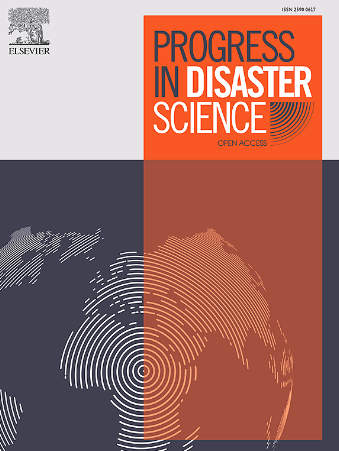The role of artificial intelligence in protecting frontline forces in CBRNE incidents
IF 3.8
Q3 ENVIRONMENTAL SCIENCES
引用次数: 0
Abstract
Chemical, Biological, Radiological, Nuclear, and Explosive (CBRNE) incidents present unprecedented challenges to frontline forces, including emergency responders, military personnel, and healthcare workers. These individuals face not only physical dangers but also significant cognitive, behavioral, and psychosocial stressors that can compromise their performance and well-being. Artificial Intelligence (AI) has emerged as a transformative tool in enhancing the safety, effectiveness, and resilience of frontline forces in such high-stress environments. This paper explores the multifaceted role of AI in safeguarding frontline personnel, focusing on its applications in cognitive support, behavioral monitoring, psychosocial well-being, and training.
人工智能在CBRNE事件中保护前线部队中的作用
化学、生物、放射、核和爆炸(CBRNE)事件给一线部队,包括应急响应人员、军事人员和卫生保健工作者带来了前所未有的挑战。这些人不仅面临身体上的危险,而且还面临严重的认知、行为和社会心理压力,这些压力会影响他们的表现和健康。人工智能(AI)已成为提高前线部队在这种高压力环境下的安全性、有效性和复原力的变革性工具。本文探讨了人工智能在保护一线人员方面的多方面作用,重点介绍了人工智能在认知支持、行为监测、心理健康和培训方面的应用。
本文章由计算机程序翻译,如有差异,请以英文原文为准。
求助全文
约1分钟内获得全文
求助全文
来源期刊

Progress in Disaster Science
Social Sciences-Safety Research
CiteScore
14.60
自引率
3.20%
发文量
51
审稿时长
12 weeks
期刊介绍:
Progress in Disaster Science is a Gold Open Access journal focusing on integrating research and policy in disaster research, and publishes original research papers and invited viewpoint articles on disaster risk reduction; response; emergency management and recovery.
A key part of the Journal's Publication output will see key experts invited to assess and comment on the current trends in disaster research, as well as highlight key papers.
 求助内容:
求助内容: 应助结果提醒方式:
应助结果提醒方式:


